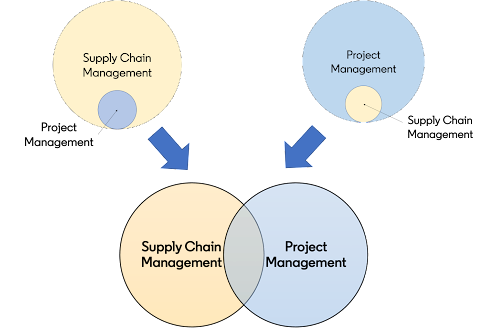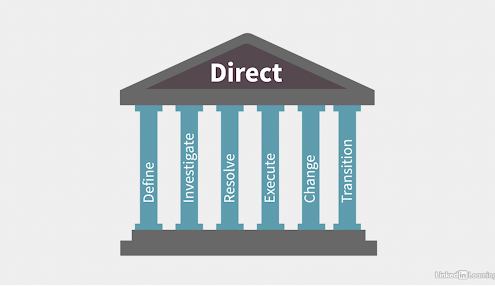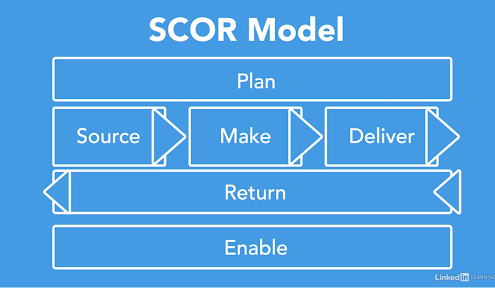The Relationship Between Project Management and Supply Chain Management
Guest post by Daniel Stanton, Mr. Supply Chain
Main point up front: Project management and supply chain management are both relatively new professions, and they are highly complementary. Supply chain managers have always spent a lot of their time working on projects to reduce costs and increase efficiency. These days, many project managers are learning the hard way about “supply chain issues” and the risks that they can pose to a project. And there is a growing demand for supply chain project managers – professionals who have the skills and experience to lead projects and transform a supply chain. Aligning project management with supply chain management can help companies increase resilience, improve sustainability, and enable digital transformation.
This newsletter was inspired by a recent conversation with Bonnie Biafore. If you know us, then it won’t be a surprise that Bonnie and I found ourselves talking about the relationship between project management and supply chain management. We agreed that project managers need to learn about supply chain management, and that supply chain managers need to learn about project management. You can listen to our chat here:
Project managers can’t truly address the risks to their scope, schedule, and budget if they don’t understand the supply chain in which they are working. On the surface, this involves learning about the procurement processes and systems. But supply chain management is really about integrating all of the processes that a company uses for creating value, which goes deeper than just procurement to include operations management, logistics, and more.
In many cases, project managers have to work with procurement people a lot more closely. (Bonnie Biafore)
Supply chain managers can’t implement or adapt to changes effectively if they don’t understand the tools, rules, and language of project management. Project management is about delivering value by developing or changing products, systems, and processes. Depending on the situation, today’s project managers can draw on a range of tools such as Waterfall, Agile, and Lean Six Sigma.
It’s particularly interesting to see the growing demand for supply chain project managers – professionals who have knowledge and experience with supply chain management, and who understand how to lead projects which focus on improving supply chains. (At last count, there were more than 20,000 job postings for Supply Chain Project Managers in the U.S. on LinkedIn.) Given the rapid pace of change that’s being driven by technology, geopolitics, and the pandemic, I think the future is particularly bright for supply chain project managers!
Project Management Tips for Supply Chain Managers
Projects are how businesses make changes. Project management is about defining and balancing constraints such as scope, schedule, and budgets. There are lots of different techniques for managing projects that can be tailored to the needs of your business. In construction projects, you will typically use the predictive Waterfall technique. For manufacturing and distribution, it will often be a Lean Six Sigma approach. For software development projects, Agile techniques have become common. Regardless of the techniques that are used the project leaders always have six key responsibilities to their project teams, that I describe as the DIRECT framework:
- Define the objective. Be clear about the change that needs to happen.
- Investigate the options. Research alternatives and benchmark with others.
- Resolve to a course of action. Build a plan and get buy-in from your stakeholders.
- Execute the plan. Monitor the progress and address challenges as they emerge.
- Change over to the new systems and processes. Manage your acceptance and launch.
- Transition the people. Make sure that your stakeholders are prepared.
Supply Chain Management Tips for Project Managers
A supply chain is a complex network made up of people, processes, and technologies that is engineered and managed to deliver value to a customer. Supply chain management requires you to view each business as part of a complex system that creates value for customers. In part, that involves integrating the internal functions in a company – especially procurement, operations, and logistics. But it also involves collaborating with customers and suppliers. In simplest terms, the goal of supply chain management is to get the right stuff, in the right quantity, to the right place, at the right time, for the lowest total cost.
Supply chains are dynamic. How do we make improvements in a supply chain? By making changes. How do we respond to disruptions in a supply chain? By changing what we’re doing, or how we’re doing it. In other words, supply chain management professionals are responsible for launching and managing projects all of the time.
The Supply Chain Operations Reference (SCOR) Model illustrates the six groups of processes that are key to managing the supply chain in any company.
- Plan. Develop your supply chain strategy and forecasts.
- Source. Build and manage relationships with suppliers.
- Make. Assemble products and create service capabilities.
- Deliver. Take and fill orders from customers.
- Return. Build and manage a reverse supply chain.
Enable. Manage all of the additional processes, including project management.
How does this affect supply chain professionals? Supply chains are how businesses create and deliver value. Projects are how we make changes in a business. Project management skills can help supply chain managers be more flexible and adaptable, and supply chain management skills can help project managers mitigate risks and be more resilient. Combining both skill sets can set you up to be a supply chain project manager, leading projects involving process improvement, sustainability, digital transformation, and more.
What do you think? Have you needed to lead and manage projects in your supply chain? Would learning about supply chains help project managers anticipate and respond to risks?
To watch the Office Hours session where Bonnie and I talk more about the relationship between project management and supply chain management go to https://www.linkedin.com/video/event/urn:li:ugcPost:6958149360392056833/.
- Implementing Supply Chain Management by Daniel Stanton
- Leading Projects by Daniel Stanton
- Supply Chain Management For Dummies by Daniel Stanton
- Project Management Foundations by Bonnie Biafore (#5 Most Popular LinkedIn Learning Course in 2022)



